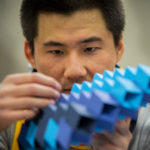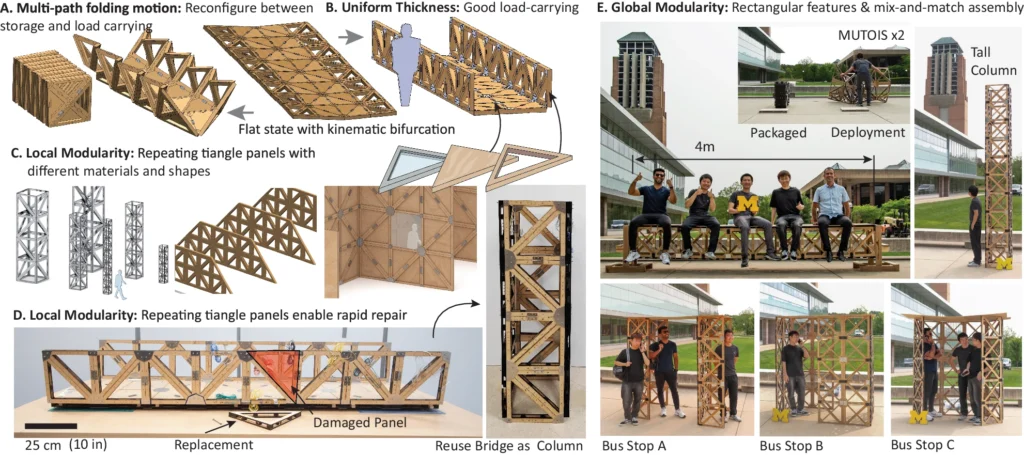In this paper, Yi advances concepts in thick origami and introduces Modular and Uniformly Thick Origami-Inspired Structure systems. Some of the notable contributions of this work are:
- The creation of a single easy-to-fabricate panel that can be reconfigured into many structures, such as a foot-bridge or a bus station, and stored in compact configurations.
- The formulation of mathematical constraints that these reconfigurable structures need to satisfy to be “developable”, “flat-foldable”, and uniformly thick.
Here is a quote from the paper explaining the impact of this work:
The development of MUTOIS challenges the traditional thinking about civil structures – where construction is slow, and buildings become stationary objects without the ability for reconfiguration, deconstruction, or reuse. Instead, MUTOIS provides powerful tools to deploy and build structures that can adapt to non-stationary environments and user needs.


